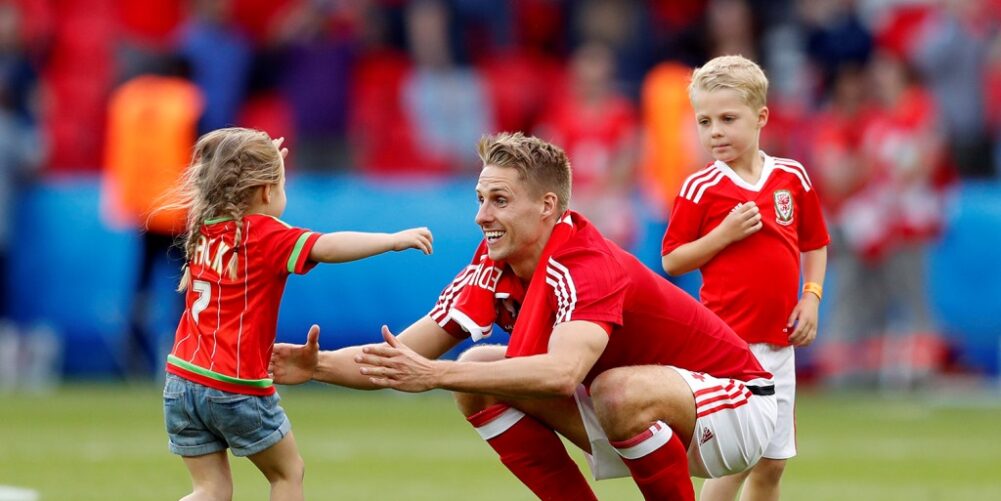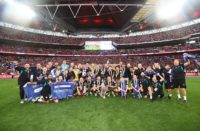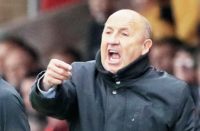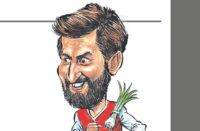(Photo: Action Images)
By John Wragg
THE flat screen TV in reception at Wolves‘ training ground is on. It’s not the usual football news of the day, it’s the news from the war in Mosul and chilling stories of 12 and 13-year-old boys planting bombs.
Dave Edwards takes it all in. He runs a children’s nursery and has also just set-up a charity for kids with disabilities.
“It’s sad. That 12-year-old hasn’t got a chance,” he says. “With children, they grow up to be the sum of their environment.
“It takes a very enlightened human being to come from a tough upbringing, from a very controlled environment that is going to play against them when they are older, to think ‘Oh no, I’m going to change my beliefs’.”
Edwards is coming towards the end of a Championship relegation fight that Wolves look as if they are about to win.
He’s in the middle of a double training session, has had a bite to eat and faces a session with the physio. He’s reminded about it with a knock on the dressing room door, where we’ve moved for the interview.
Edwards’ 14-year football career has been spent in rooms like this, most notably at Wolves where he played and scored in the Premier League and was relegated down to League One.
His football debut as a sub for Shrewsbury Town, in a 2-1 home defeat by Scunthorpe, was the day his home town club went out the Football League.
Edwards’ career, like Boris Johnson’s hair, has been all over the place.
But it’s nothing compared to what was on TV just down the corridor.
“I’ll be there in a minute,” says Edwards to the prompt about the physio. His mind is still on Mosul.
“You know when people look at you and think you are exactly like your mum and dad, the way you act, mannerisms, the way you think about things? It’s the same for these children.”
Edwards, 31, is one of the busiest men in football.
On the pitch, he was the first in the Championship to make 100 tackles this season. He’s scored a career-best ten goals and the last time that was done by a Wolves midfield player was the late Andy King 31 years ago.
Off the pitch, he runs his play centre, Little Rascals, with his lifetime friend Ben Wootton and has his foundation for children with learning disabilities.
“We provide a service for holiday clubs for children, to give the parents a bit of respite,” says Edwards.
“The first little boy we helped we bought him a specialised travel cot. He had never been on holiday since he was a baby. He needs a lot of space when he sleeps and he obviously can’t just turn up for a normal holiday. They just wouldn’t be able to take him.
“He is seven years old, so we bought this cot and they are going away for the first time since he was a baby, going to Center Parcs.”
There was a launch evening for the charity last Saturday after Edwards had helped Wolves beat Cardiff.
Welsh manager Chris Coleman went to the event at Shrewsbury’s ground, giving it added profile, persuading people to dig a bit deeper into their pockets.
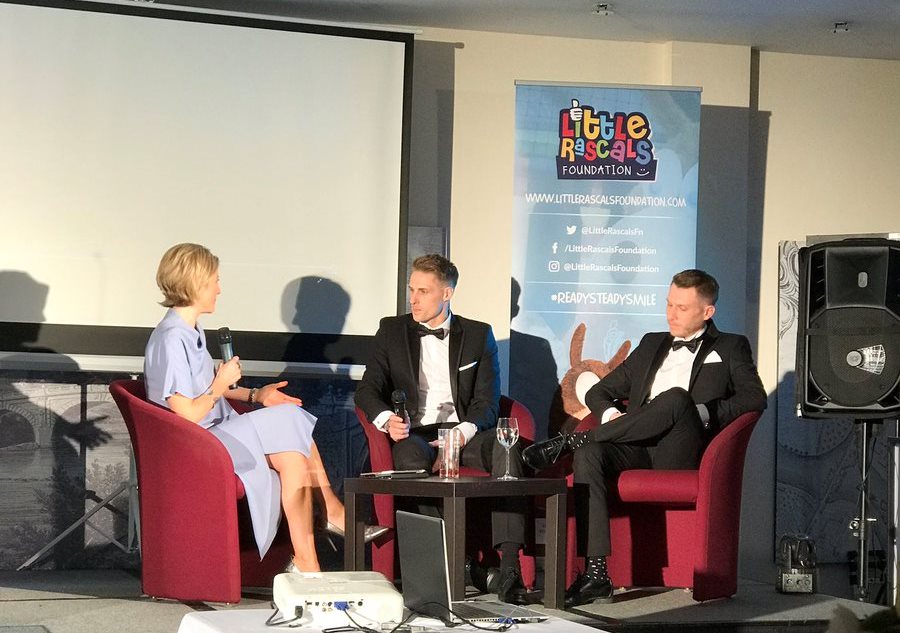
“The stand-out moment of my career was that first game for Wales in the European Championships,” says Edwards.
“It was because I started that game (against Slovakia). Everyone was fit and available and, in my head, I hadn’t been 100 per cent sure if I was going to even be in the final 23.
“You watch major tournaments through your childhood and there was something special about me lining up, singing the national anthem, the first game at a major tournament.
“And to have my kids watching on telly as well. Yes, special.”
Edwards says he has changed. Matured is a better word.
“When I was younger I was very much ‘come in, train, go home’. Think about football, about why I might not be playing on Saturday, why I might be playing. Think about it when I’m in bed. Wake up in the morning football, football, football.
“The charity it does fill me with a sense of, what’s the words…? It’s almost like a duty for footballers. We are put on a pedestal, we get all these amazing things.You are a role model for children and you’ve got to use it in the right way.
“I’m nowhere near the degree of David Beckham or Wayne Rooney and the amount of people they can reach, but I am very lucky.
“The amount of people we have following us via social media and the amount of time we get in putting our message across is more than most people. So, you have got to use it in the right way.
“I was brought up in a great environment in terms of my mum working with adults with disabilities for a long time. I would go to the home where she worked. I was always around and in contact with learning disabilities and Ben has got a real passion in that area.
“There’s a young girl we are trying to help. She’s got cerebral palsy and she needs an operation which isn’t funded on the NHS. She is having to raise 60 grand for the operation and an extra £15,000 for the intense physiotherapy afterwards.”
Injuries and Wolves’ plunge from Premier League to League One hit him hard.
“If I was down at football, which I was a lot when I was out injured, I’d say it was borderline depression,” reveals Edwards.
“It had a big effect on my home life, but I made that switch. I would make sure I was happy at home and then carry that into football.
“The double relegation was hard for the club and I don’t think anyone suffered more than me. I was really struggling.
“I had a pretty awful relationship with the fans at that point. They would have wanted me out as quick as they could. My performances weren’t great and my body was giving up on me.
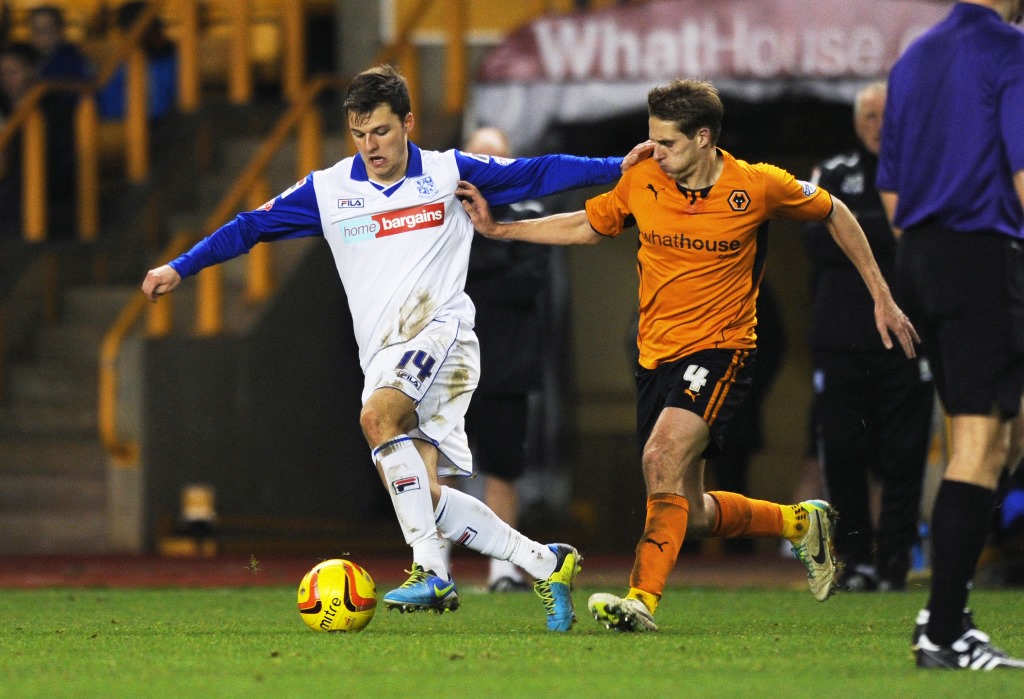
“That’s the point where I went away from football and concentrated on family life and being happy – a lot more personal development. I just made sure I had a complete happiness away from the game and anything else is a bonus.
“I changed everything, from the way I eat to the way I sleep. I got up early every morning before the kids and spent time reading.
“Before, it would have been football and watching telly all the time. It has been an upward curve in terms of the amount of minutes I have played on the pitch, the football I have been playing.
“There was a physio called Carl Howarth – he’s at Everton now – who said he’d been listening to and reading the stuff I did with the press and on the website and every time I talked I was going on about being injured and getting fit.
“He said I was putting so much emphasis on it that it was working against me. He said to read this book on an outlook of life and see what I thought. It’s basically what you think, you become.
“I am a very, very – my wife, Emma, will say annoyingly – happy person. She says I will find the good in everything.
“I’m terrible with the kids because I don’t like to tell them off. On my phone I will have a collage of pictures that make me happy. Me scoring a goal, my family, holidays, things like that.
“Every time I feel a bad force coming into my mind I will click my phone on and have a look at the pictures. It has become automatic.
“I am proud of the teams I’ve played for and how well I’ve done because I was a late starter. When my chance came to go to Shrewsbury, to be brutally honest I was very pessimistic, thinking not too many make it.
“That debut, when they got relegated, if I’d never played a Football League game again it was huge.
“I’d never known nerves like it. I had to be at the ground for 1.30pm and it was only 15 minutes from my family home, but I left at 12 so I wouldn’t be late.
“It felt like I was a kid again waiting for my mum to take me to football because I couldn’t drive. I was outside in my tracksuit kicking the ball up against the wall waiting to go.
“I used to stand in the River Side Stand at the old Gay Meadow, the stand where you used to lose the ball in the river. We had this goal kick and the ball went up and the floodlights were on and I saw the River Side.
“It was just like slow motion, I was stood in the middle of all this playing in front of a crowd.
“It’s been milestones right through to last summer when I played in the Euros. The rollercoasters, the ups and downs, have been part of the journey.
“When you are young the thought of professional football is so far away, isn’t it? Going up the ladder, it’s like being in a gigantic film, like Hollywood.”

